Rameez Makhdoomi
Very few humans elevate above the manmade barriers of caste, creed, religion, nationalities, ethnicities and nationalities to fight for humanity and raise voice against injustice.
One such voice is British Army Officer Robert Thorpe who is adored by many in this oppressed land as first guest martyr of Kashmir and many adore him as being the champion for Kashmir’s ‘Freedom Movement.’
When he wrote about the unvoiced Kashmiris a book “Misgovernment” it created its own positive impacts in highlighting the burning issues of pain hit masses of Kashmir. He was killed on Sunday 22 November 1868 and dead body was thrown away from Sulyman Tang in Dalgate Srinagar.
According to historians his mother was from kishtwar District of Chenab Region. He is buried inside the Christian graveyard-a few meters away from city’s historic clock tower. Pertinently, he was the First Kashmiri in Britain.
British colonial officers in India were regular visitors to Kashmir. They either did not want or could not afford trips back home during summer holidays. For such officers Kashmir became a perfect destination to escape the scorching heat of Indian plains during summer.
According to Yousaf Saraf (1977) in the summer of 1833 one colonial army officer Colonel Thorpe came here on holidays. While socializing with the local elites he caught sight of a girl that instantly turned into love – the love at first sight.
This girl was called Jani. According to Saraf she was daughter of Dayim Rathore, the then ruler of Kishtawar principality holidaying at Toshamaidan. All we know about this ‘Daughter of Kishtwar’ is that her name was Jani’, and she was remarkably beautiful and Colonel Thorpe was mesmerized by her beauty.
The love bloomed and the officer found hard to even think of leaving without Jani. However, since Jani was a Muslim he had to be converted to take her with him back to Britain. He did just that, married to Jani and brought her with him first to India and then to his home, Britain. Nothing specific and much is told about the arrival of the first ‘British Kashmiri’ couple to Britain or their life as to where they lived and what were the names of three children they had etc.
It can be traced from the available information that the story of this ‘transnational’ marriage did not end here but took a rather historical turn when one of their sons Robert Thorpe Junior also joined army and went to visit what was literally his ‘motherland’ or, at least, ‘mother’s land’, in 1860s.
By now Kashmir was turned into a Kingdom through the famous Amritsar Treaty which made Raja Gulab Singh to buy the rule of this kingdom for 7.5 million rupees Nanak Shahee. At the time of Thorpe’s visit to Kashmir the state was ruled by Maharaja Ranbir Singh, the son of Gulab Singh. While in Kashmir Lt. Robert Thorpe, like his father, also became too much involved but not with the beauty but sufferings and pain of Kashmiri people.
During his stay in Kashmir, he traveled around in the state and collected significant primary and secondary data (first and second hand information) on taxation, shawl industry, judiciary and police systems and the actual execution of various laws and policies.
He wrote several articles accusing British government of selling Kashmir’s Muslim majority population to a Hindu ruler whose rule is characterized by suppression and exploitation. He argued and championed for Kashmir state to be merged with British India. His articles were published in Britain as well as in Indian press and as can be expected were not appreciated by the peoples in power. 9797041562
According to father Biscoe who visited Kashmir in 1890, Thorpe was ordered by the Maharaja Government to leave Kashmir and on refusal was bounded with his Kahaatt (bed) and soldiers carried him out of the Kashmiri State boundaries. He sneaked back to Srinagar but to no avail as next morning, he was found dead after his breakfast. Was it a murder? It remains a mystery.
According to Saraf, he died on 22nd November 1868. He is buried in the British cemetery at Sheikh Bagh Srinagar. The epitaph there reads ‘He gave his life for Kashmir’.
It is worth pointing out here that his articles were published after his death under the title of ‘Cashmere Misgovernment’ by Longmans, Green and Company, London in 1870. The book that has been described by many as the first social study of Kashmir provides useful information on the taxation system, shawl industry, beggar (forced unpaid labour), the 1846 treaty between Gulab Singh and British government and migration of shawl workers from the Kashmir Valley. Many of these shawl workers’ families settled in Mirpur from where along with Mirpuri peasant and workers they were to migrate to Britain in the closing years of 19th and early years of 20th century.
Kashmir’s eminent youthful writer Shahzad Hamdani pays tribute to historical persona of Robert Thorpe in these beautiful words –“Today, while going through the pages of Kashmir’s History of Conflict and sacrifices, brought me close to a person, who had been one of those who not only said but in real terms died for the true cause of humanity and for the Greater cause of Kashmir Conflict. A person, who every Kashmiri has forgotten, a person who could have lived a luxurious life, but he left his luxurious life in England , just in order to come to the rescue of starving and ragged people of Kashmir. This man took the path of sufferings to be remembered as a real soldier of Kashmir.”
Undoubtedly, humans like Robert Thorpe would continue to inspire whenever oppression and suppression would try to scuttle human values.

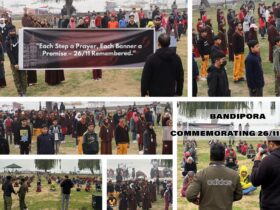


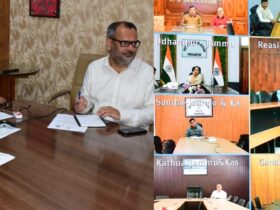



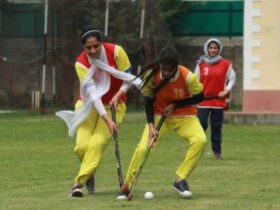

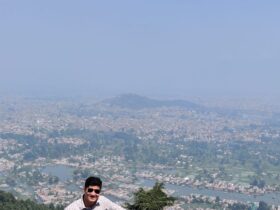
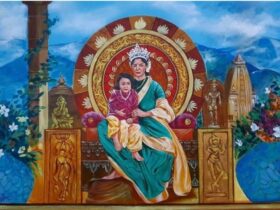


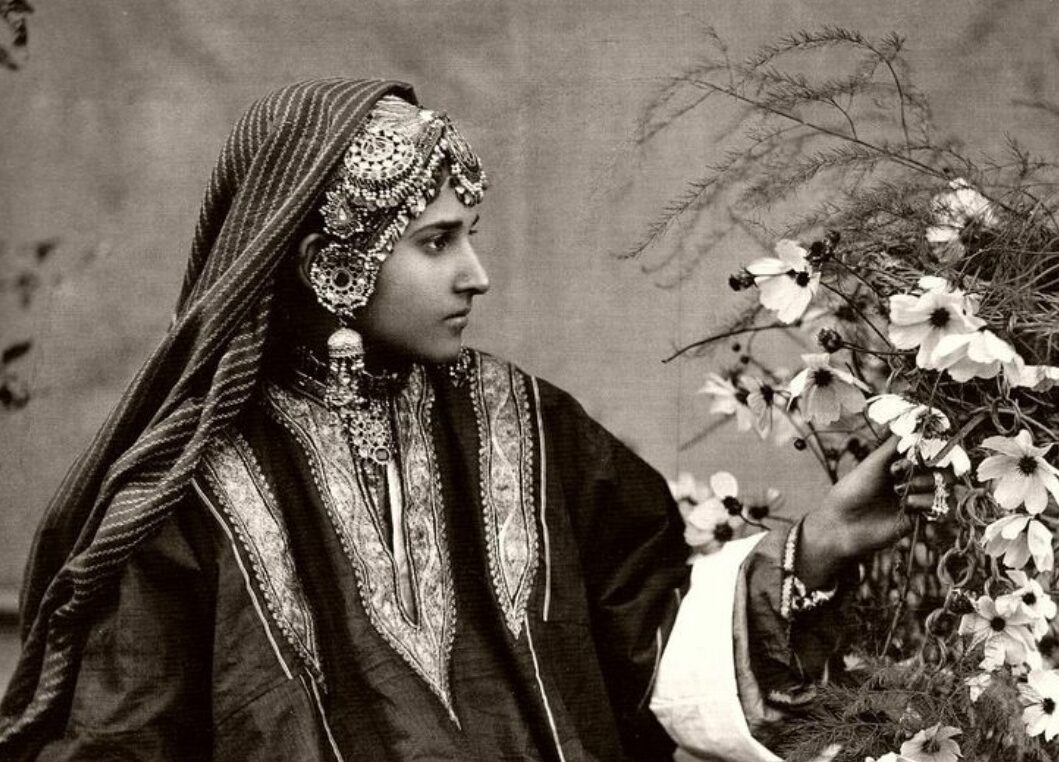

Leave a Reply